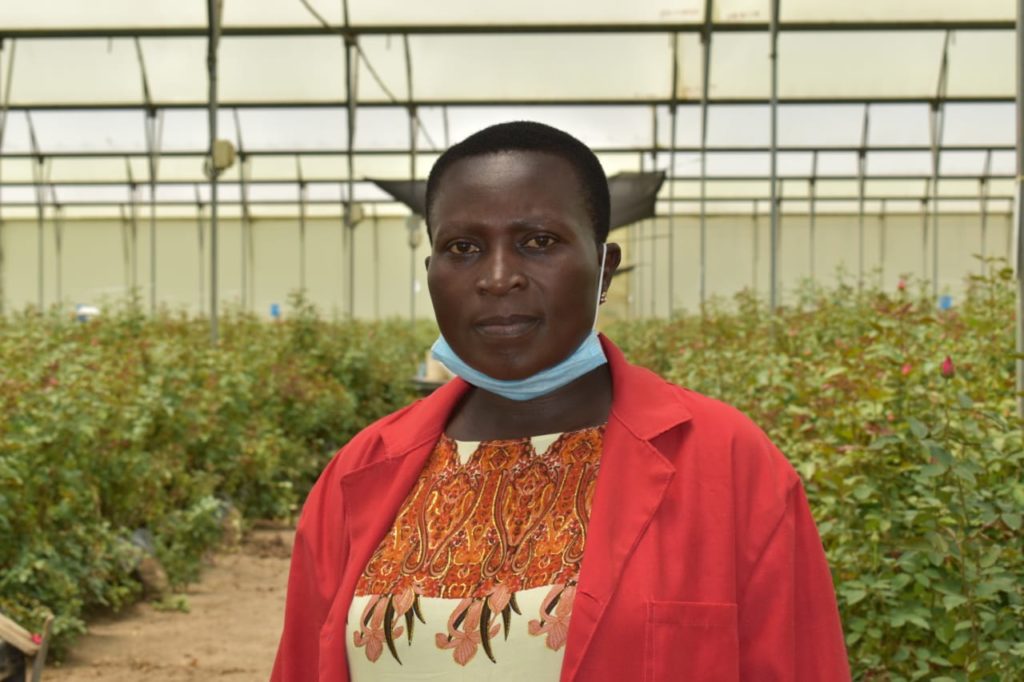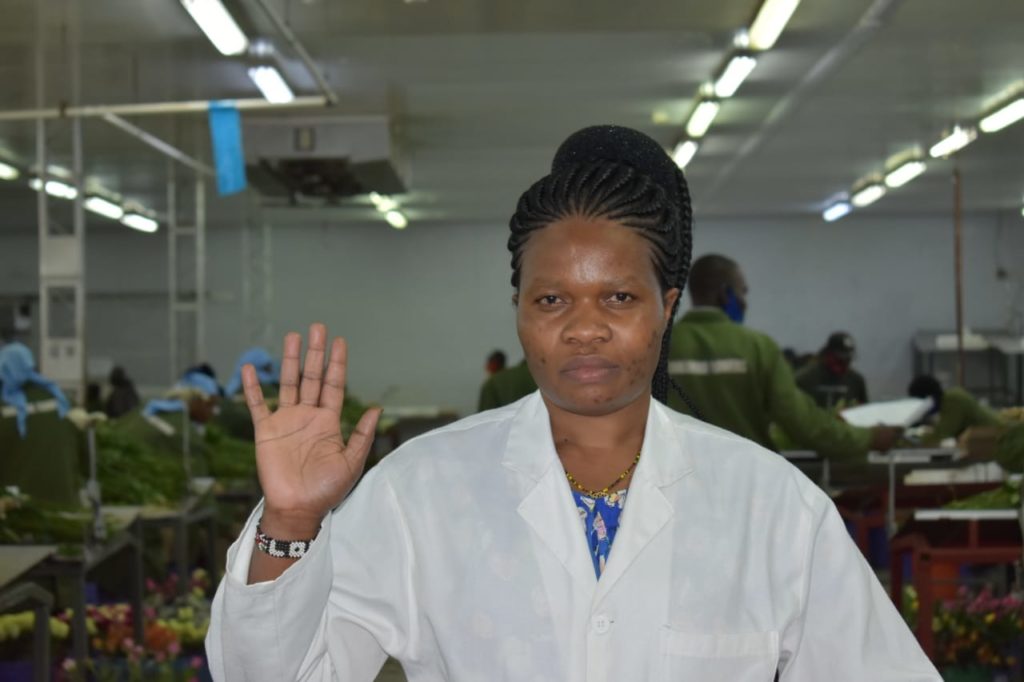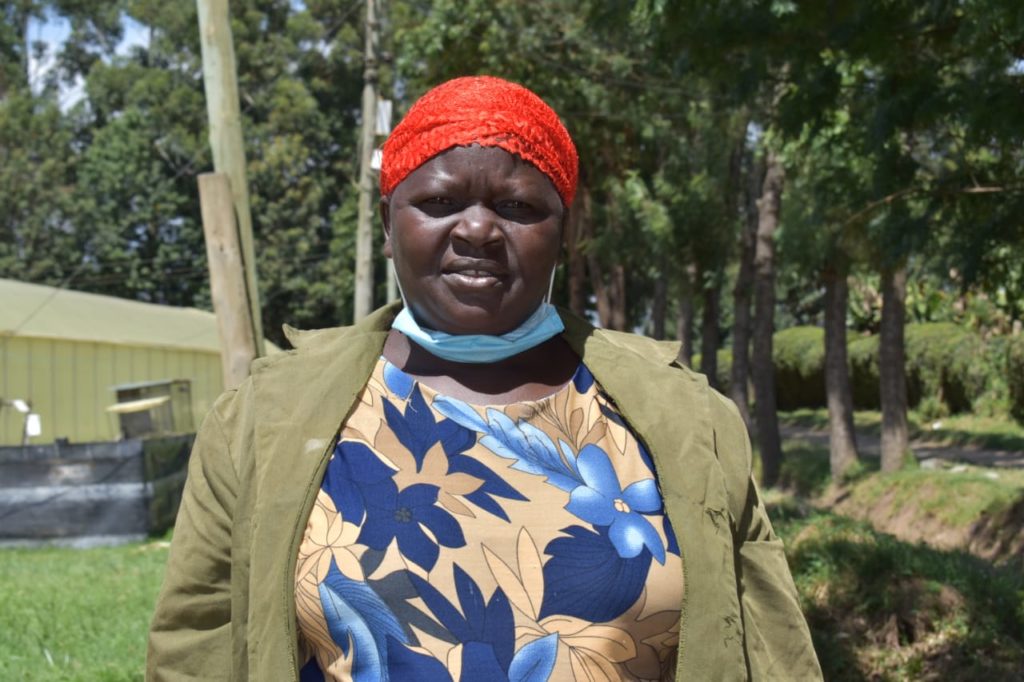This International Women’s Day, we shine a spotlight on the rights won, and the challenges still faced, by women working on a Kenyan Fairtrade flower farm.
47-year-old Anne Abuke vividly remembers the day she joined Shalimar Flowers back in June 1994, fresh from high school, eager to start life on her own.
At the time, the flower industry was still fairly young, with far fewer producers compared to today. She watched the flower farm evolve from growing carnations to vegetables, before setting up its rose arm in 1998.
In her 27 years, she has transformed as much as her employer. She has been a general worker, a greenhouse recorder, a childcare worker at the farm’s creche facility and today she’s in charge of hygiene in certain areas of the sprawling flower farm, based in Naivasha.
The mother of six has welcomed the arrival of three of her children while working at the farm. She starkly recalls the difficult circumstances expectant mothers faced at the time.
Back then (late 1990’s and early 2000’s), women returned to work in a week or less after delivery. We did not have maternity leave and were not paid for the time off to conceive and recover. We had no choice. We had to come back to work as quickly as we could, because staying home meant no money to take care of our families.
Anne Abuke
Rights won for new mothers
In 2003, change was imminent. There was a strong mobilisation at her farm that led to the unionisation of workers and the establishment of worker friendly policies. In the same year, Anne was elected to the union as a worker representative.
Having gone through two pregnancies at the farm with no policies to cushion her, Anne was vocal about issues affecting nursing female workers. This led to the introduction of a ‘green card’ which nursing mothers can use for nine months. ‘They would show it at the gate, allowing them an extra hour in addition to the lunch break to breastfeed their children.’
When Anne had her last child in 2008, she saw her efforts to advocate for better conditions for expectant and nursing mothers truly begin to bear fruit. For the first time in her career, she was allowed to take three months of maternity leave before resuming work.
‘Today, things are right. Even male workers get a 15-day paternity leave. Now I tell young mothers, tales of how far we have come.’
Fairtrade has played a huge part in this change. Anne says, ‘Working conditions for women have progressively become better because of Fairtrade. For this reason, it is now standard practice for breastfeeding mothers to work for six hours and return home to look after their young ones.’
Women have come a long way
Anne believes that on a global scale, women have come a long way, however, numerous hurdles still remain in the path to realising their full potential.
‘In leadership, women can be perceived differently, based on their social status. Single mothers for example are regarded questionably. This needs to stop, regardless of a woman’s social status, she has an intelligent mind and can think independently which is all that counts in leadership.’
‘In other cases, women have been denied a fair chance to access opportunities on merit, some being harassed sexually in return. This too needs to stop. Our dignity and capacity to lead should not be determined on the basis of our social status and gender.’

Women have the potential to achieve a lot when they are given the opportunity. But you find that there are people who undermine us saying we cannot do it or cannot manage huge responsibilities. When people change this attitude and support women, they can achieve a lot. Give women a chance. Give them the opportunity to be heard.
Rebecca Akoth Amoth, Supervisor at Shalimar Flowers

As a new employee, I worked as an Assistant Packhouse Manager and after some time, the farm saw that I was capable of my job and confirmed me. I was proud of myself because under normal circumstances, my education would not have allowed me to take up this role. All I had done was prove that I could do my job very well… I can confidently say that Shalimar Flowers empowers women, and I am proud to be one of them.
Carol Mukoko, Shalimar Flowers
Support flower workers like Anne, Rebecca and Carol by buying Fairtrade flowers.
Where to buy Fairtrade Flowers
